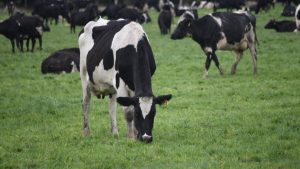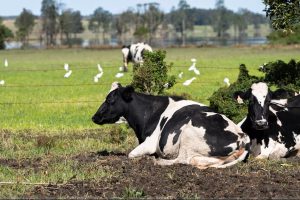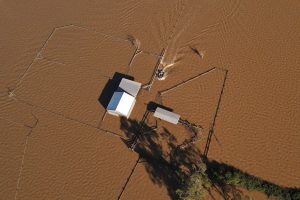
Dairy businessman Ben Woodhouse said the proposed changes in the draft water sharing plan released last month came as a complete shock to the Manning River Water Users Association
“These draft proposals threaten the future viability of our farming operation in the lower Manning valley,” he said. “There was apparently a targeted consultation process in July 2021 but myself and other members were not contacted until December 2021.”
Mr Woodhouse is talking about the Draft Water Sharing Plan for the Lower North Coast Unregulated and Alluvial Water Sources, which was released in January on public exhibition and is only open for submission until February 27.
It covers the Great Lakes, the Manning and Karuah valleys – including rivers such as the Manning, Karuah, Gloucester and their tributaries.
The Water Sharing Plan sets the rules for water management including limits on the total volume of water that can be extracted. The final plan is expected to come into force on July 1 this year and last for 10 years.
Water Sharing Plans are designed to protect, and where possible enhance and restore, the condition of the water sources and their water-dependent ecosystems. A key objective is also to maintain, and improve access to water to optimise economic benefits for agriculture, water-dependent industries and local economies.
However, the draft plan includes drastic changes that will leave lower Manning River farmers cut off from water and unable to grow crops in one in four years.
This is because the draft released in January proposes that lower Manning farmers cease to pump water when river flows fall below 98ML a day, instead of the 31ML a day trigger in the original draft plan released in 2016.
For farmers, that is the difference between surviving droughts or being forced out of business.
Mr Woodhouse said the plan spells disaster for his 750-cow dairy herd operated as Manning Valley Dairy. He purchased the 325-hectare property near Wingham two years ago based on its access to reliable water, good soils and location.
He has since spent in excess of $1 million on water infrastructure to maximise water efficiency and on-farm feed production, to reduce reliance on bought-in feed/hay and as a part of a more sustainable approach to production.
His aim is to establish a vertically integrated ‘paddock to plate’ enterprise. He is a director of Maxum Foods, which is based in Brisbane and is a leading supplier and manufacturer of dairy ingredients to the food, health and animal nutrition industries.
The company specialises in supplying medium to large-scale food manufacturers with high-quality dairy ingredients such as milk powders, cheese and butter.
Currently the Wingham farm, which employs 14 people, is the largest supplier to the Woolworths Farmer Own brand of fresh milk.
The Manning River Water Users Association is extremely concerned on the effects not only to their own businesses, but the local community. We all employ and buy locally and this will put a lot of pressure on our community.
“What we are doing on the farm and what we were planning, will lessen our environmental footprint.
– Ben Woodhouse
“What we are doing on the farm and what we were planning, will lessen our environmental footprint. Our upgraded irrigation infrastructure will reduce our reliance on over 150 hay trucks (per annum) delivering feed to our farm. If we lose this water, this initiative will be a complete waste of time, money and increase our environmental impact majorly – potentially causing us to close down our operation completely,” he said.
“Under the draft plan the proposed cease to pump (CTP) access rules (137ML/ day rising and 98ML/ day falling) are inconsistent with the 2016 Draft proposal (50ML/ day rising and 31ML/ day falling), which the Manning River Water Users Association have been operating under.
“We are just asking that the Lower Manning is brought back in line with the rest of the river.”
The Manning River Water Users Association seeks to further engage with government to seek improved outcomes for water users, government and the environment.

























